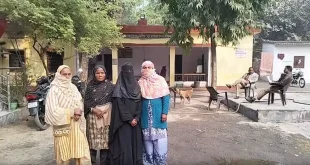Prayagraj, September 25 (HS). The Allahabad High Court in an order held that a false criminal case by the wife against the husband and his family may give rise to a reasonable apprehension in the mind of the husband about the safety of his family and himself if he continues in the marital relationship. The court held that such a false criminal case is sufficient to constitute cruelty under section 13 of the Hindu Marriage Act 1955.
The parties got married in 2002 and a son was born to them. The respondent husband alleged that the appellant-wife had deserted him in 2006. He subsequently initiated divorce proceedings. In the year 2011 he amended his plaint to include cruelty as a ground for divorce as false criminal cases were lodged by the wife against the respondent and his family members for demanding dowry. On the basis of such false allegations, his family members were arrested and later got bail.
The court found that the wife had lodged the FIR regarding dowry demand after 6 years of marriage and after the husband had filed a divorce petition. The parents and the husband were acquitted. As the appellant could not support her allegations with evidence and retracted her statement. Hence, the High Court held that cruelty was proved.
The wife's counsel challenged the divorce order passed by the Additional Principal Judge, Family Court, Kanpur Nagar and argued that the criminal cases were filed due to ill-treatment meted out to her by the appellant during their marital life. However, the Court found that such allegations were not proved.
Though the appellant claimed that a settlement was reached between the parties, no such document was brought on record before the court. The High Court said that once the parents are arrested and the allegations against them are found to be false, strict proof of cruelty cannot be called for. It was held that if the demand for dowry was proved, it would have been a different matter. Since the allegations were false and it affected the reputation of the respondent and her family, the court therefore said that the respondent husband was subjected to cruelty and for fear of such recurrence in future, he does not want to cohabit with the appellant.
A bench of Justice Saumitra Dayal Singh and Justice Donadi Ramesh passed the order on the appellant Tripti Singh vs Ajat Shatru case and said that the reputation of the respondent and his family has been damaged due to the act committed by the appellant. After this, the respondent cannot be expected to recover from it and resume his marital relations.
Noting that both the parties are well educated, the court held that the respondent husband has suffered loss of reputation due to the false criminal case by the appellant-wife. Thus, there will be a similar risk in future as well. On this basis, the High Court upheld the divorce order of the Family Court.
 look news india
look news india



